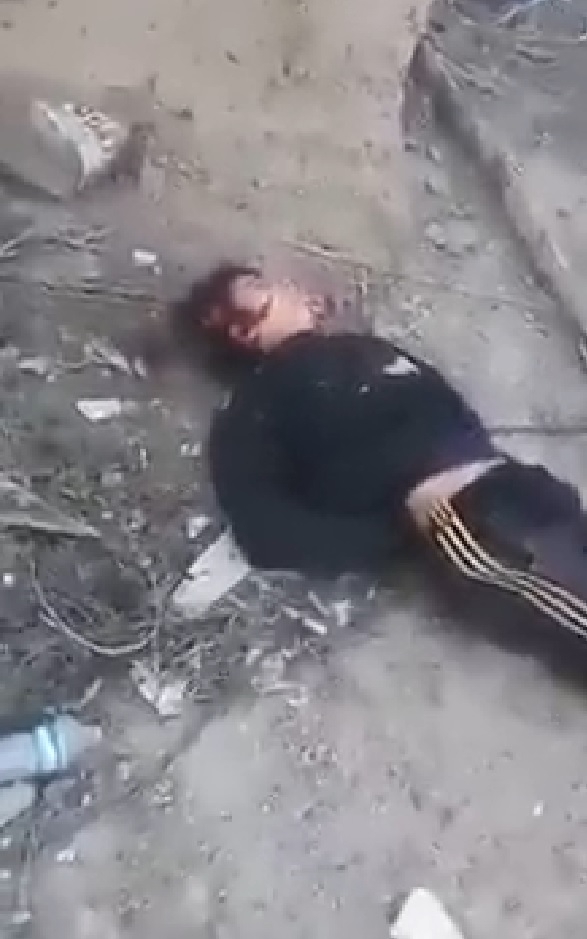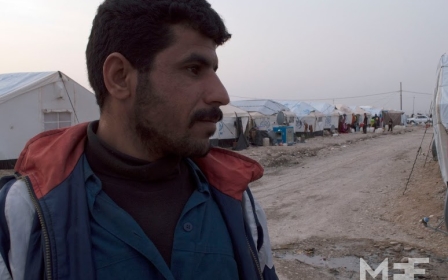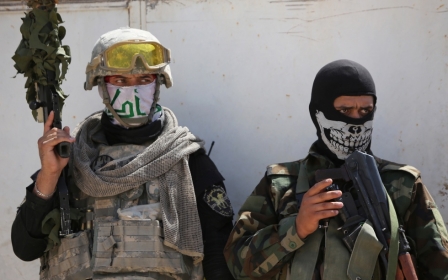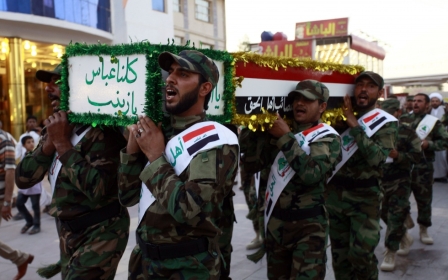Iraqi civilians at risk in anti-IS offensive: rights groups
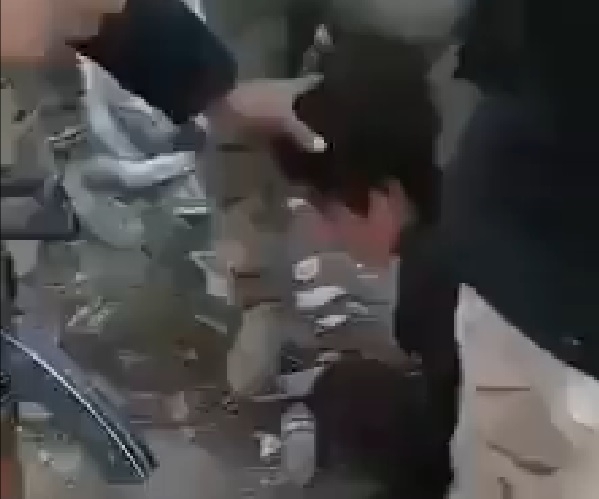
Rights groups expressed concern Wednesday that civilians were at great risk in the huge military operation the Iraqi government launched to retake the militant stronghold of Tikrit.
On Monday, some 30,000 Iraqi security forces, Shiite militia and volunteers, and some Sunni tribal fighters launched Baghdad's largest operation yet against the Islamic State (IS) group.
Some leaders and fighters have described the operation as an opportunity to avenge the killing of military recruits at the hands of IS militants.
"Shiite paramilitary militias have often carried out reprisal sectarian attacks against Sunni civilians who are not involved in the hostilities," said Amnesty International's senior crisis response adviser Donatella Rovera.
"We are concerned about the possible recurrence and increase of such attacks in the ongoing operations," she told AFP.
The warning comes amid the circulation of a gruesome video purportedly showing Iraqi security forces shooting dead a 13 year old boy after handcuffing him, although the reasons for his summary execution were not clear.
The authenticity of the video, which appears to be shot via a mobile phone camera, cannot be independently verified.
Some pro-Shiite militia commentators took to social media to defend the murder, while critics pointed to the brutality of the opponents of IS.
At the close of Baghdad's previous major operation, which led to IS being forced out of Diyala province, Shiite fighters allegedly executed at least 70 Sunni villagers.
Prime Minister Haider al-Abadi, who has ordered an investigation into the massacres, said as he announced the Tikrit operation that residents should turn against IS, which has controlled the city since June last year.
In a speech to parliament, he also said that "in this battle, there is no neutral party," arguing that any Iraqi choosing neutrality was de facto siding with IS.
"Abadi's statement that there can be no neutrality is worrying," said Joe Stork, deputy Middle East and North Africa director at Human Rights Watch.
"Any person who is not participating in hostilities directly must be regarded as a civilian, and protected against deliberate or indiscriminate attack," he told AFP.
"Civilians were left unprotected by Iraqi government forces when IS took over towns and villages last year," said Rovera, referring to the collapse of the armed forces that saw IS take over nearly a third of the country last year.
"They must not now be penalised for the failings and inadequacies of the armed forces which have been unable or unwilling to protect them until now," she said.
Abadi has urged his forces to treat civilians with the "utmost care" but there are no mechanisms ensuring that the wide array of forces fighting against IS are accountable.
New MEE newsletter: Jerusalem Dispatch
Sign up to get the latest insights and analysis on Israel-Palestine, alongside Turkey Unpacked and other MEE newsletters
Middle East Eye delivers independent and unrivalled coverage and analysis of the Middle East, North Africa and beyond. To learn more about republishing this content and the associated fees, please fill out this form. More about MEE can be found here.


